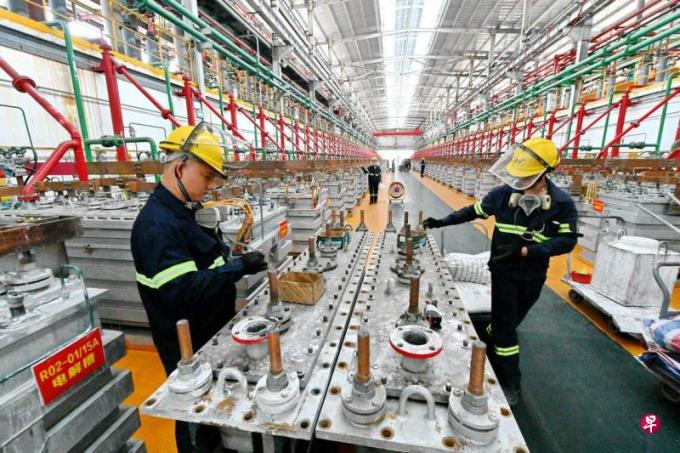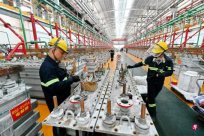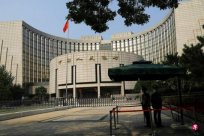
The official data released on the last day of 2023 showed that the prosperity of the Chinese manufacturing industry has shrunk for three consecutive months and fell to the lowest level in six months, indicating that the road of China's economic recovery in the new year is more tortuous.
According to the data released by the Chinese official Sunday (December 31), the manufacturing procurement manager index (PMI) in December 2023 decreased by 0.4 percentLine, the lowest level since June last year.In December, PMI was also lower than 49.5 predicted by Reuters survey analysts and 49.6 predicted by Bloomberg.
In various indicators, the production index continued to expand, but it decreased by 0.5 percentage points from the previous month to 50.2.The new order index decreased by 0.7 percentage points to 48.7 from November, and contracted for the third consecutive month; the new export order fell to the lowest point of the year of 45.8, highlighting the weak demand for overseas markets.Zhao Qinghe, a senior statistician of the Service Industry Investigation Center of the National Bureau of Statistics, pointed out that since last year, major economic manufacturing industries such as Europe and the United States have continued to shrink."The current external environmental complexity, severeness, and uncertainty have risen. In the survey, some companies reported that the reduction of overseas orders to reduce the lack of effective domestic demand is the main difficulty facing enterprises."
The business activity index that measures the boom of non -manufacturing activities has touched the lowest point of last year in November, and 0.2 percentage points rose to 0.2 percentage points to 50.4 in December.Among them, the business activity index of the construction industry is 56.9, which has been officially increased to rebound for two consecutive months in the official increase in infrastructure investment.The business activity index of the service industry was flat at 49.3, and the second month shrinks.
Reuters quoted Nie Wen, a Huabao Trust Economist, to analyze that China must increase policy support, otherwise the growth of growth will continue.He expects the central bank to reduce interest rates and bank deposit reserve ratios (RRR) in the next few weeks.
Nie Wen added that the decline in prices has greatly impacted corporate profits, and further affects the employment and income of residents, which may lead to a vicious circle.
The Consumer Price Index (CPI) of Chinese residents recorded the largest decline in three years in November. At the same time, the industrial producer's factory price index (PPI) fell for 14 consecutive months, exacerbating the outside world's concerns about the risk of currency tightening.
The Bank of China Monetary Policy Commission pointed out at a quarterly regular meeting on Wednesday (December 27) that it will increase the implementation of monetary policy, "promoting low prices to rise, and maintaining prices at a reasonable level."
Wang Jun, chief economist of Huatai Assets, was analyzed during an interview with Lianhe Zaobao. Recently, many major commercial banks have simultaneously reduced the deposit interest rate, stabilized the level of interbank interest margins, and paved the way for subsequent reduction of loan interest rates.From the current situation, the possibility of lowered loan interest rates in January 2024, and the decline may be at 5 to 10 basis points.
Wang Jun believes that the manufacturing PMI may rebound at any time in the next two months, but in view of the current deviation of 1 percentage point from the expansion range, it will take longer to return to expansion.He pointed out that in the past three quarters, the manufacturing PMI has returned to expansion in September.Essence




